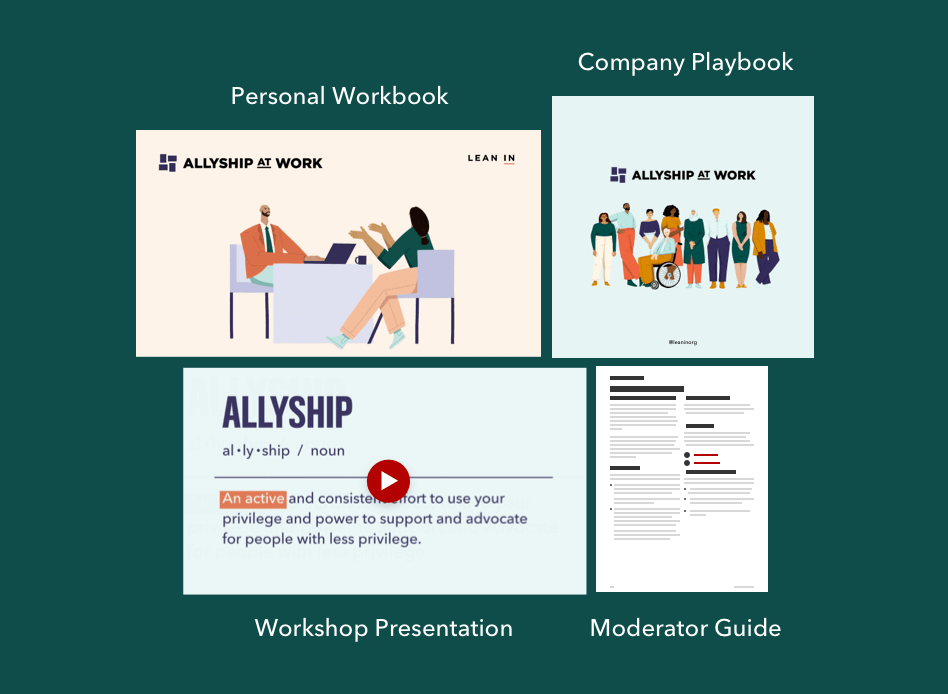Allyship At Work
Allyship at Work helps employees recognize unfairness at work and learn specific actions they can take to practice allyship.
Allyship is a powerful force for good
Allyship at Work introduces employees to a series of research-based “allyship actions” and organizes them into small groups by level to brainstorm how they can best show up as allies in their company.
Research shows allies don’t just influence one person at a time. They inspire others to act, creating a culture of acceptance and support. And when employees feel included and valued, they are able to share their best thinking and do their best work.



What makes Allyship at Work effective
Designed to engage all employees
Everyone—regardless of their role or level of seniority–learns how to see the workplace from other employees’ perspectives and discovers ways they can practice allyship.
Specific and interactive
Explains in detail what allyship is and why it matters, highlights over 50 specific actions employees can take in common workplace contexts, and facilitates individual discovery and group brainstorming.
Rooted in research
Allyship at Work is based on decades of research—including our own—and input from experts on the most effective ways to support coworkers with a broad range of backgrounds.
Free and flexible
We provide everything you need to run a successful Allyship at Work session—and at no cost because every company should have the tools to create change.

3 easy steps to facilitate your workshop.
-
1
Prepare with the moderator guide
Learn how to moderate effective workshops with a primer on allyship and a recommended script for running the workshop. -
2
Engage your employees
Allyship at Work comes equipped with a Company Playbook filled with marketing assets and email templates to get your team excited, a Workshop Presentation complete with educational videos, and a Personal Workbook employees can reflect in and return to. -
3
Bring your team together
Allyship at Work is optimized for either in-person or remote teams of all sizes.
How it works
The program is designed for virtual or in-person teams and consists of two main components: a four-hour workshop that introduces participants to the practice of allyship and three small group follow-up sessions that provide participants with accountability and support as they put what they’ve learned into action.

Half-Day Workshop
Setting the Foundation: Allyship, Power, and Action
See the details

Three Monthly Discussion Groups
Practicing Allyship: Ongoing Action and Accountability
See the details
Leading companies are seeing results
After participating in Allyship at Work, 94% of employees feel more equipped to take action, and 96% would recommend the program to coworkers.
What companies are saying
“This program not only provided educational resources and insight, but also tools, best practices, and next steps to evolve individual, and community, allyship practices.”
Ready to build an inclusive workplace?
Become an Allyship at Work moderator.
 Access the program materials
Access the program materials








